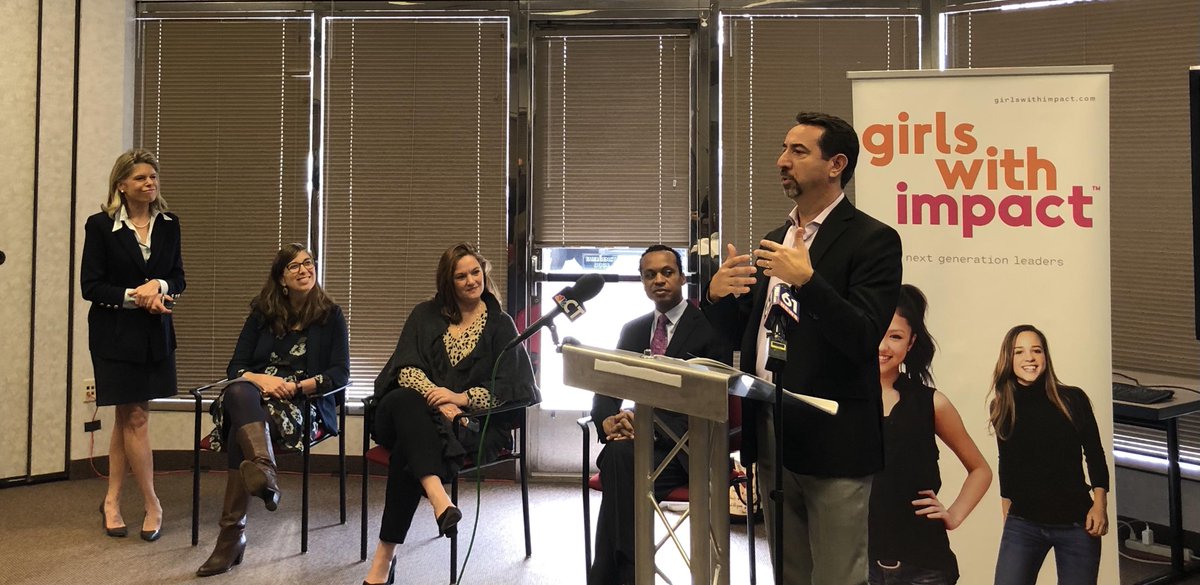New Report Shows Pandemic’s Economic Impact on Women

A new Connecticut report shows the pandemic impacted the ability of more than two-thirds of women to return to work, with one-third reporting a decrease in income.
Over 50% of women of color saw a decline in their income according to the report, A Post-COVID Economic Recovery for Women, released Dec. 1 by Girls With Impact.

Jennifer Openshaw, CEO of Fairfield County-based Girls With Impact, said the report showed that women shouldered a disproportionate share of the pandemic’s economic burden.
“Women have been called the ‘shock absorbers’ of COVID-19,” she said at a press conference hosted by CBIA in Hartford.
“If we look at the impact, it’s been tremendous because they make up 50% to 70% of some of our big industries like food service, education, and healthcare.”
Openshaw said the report, produced with the support of the Fairfield County Community Foundation and JP Morgan Chase, involved nearly 50 leaders across education, business, and government.
Recommendations
Its recommendations include training in high-growth industries such as technology, advanced manufacturing, and green energy, increasing access to venture capital, and addressing the gaps in the state’s childcare system.
“By creating a thoughtful post-COVID economic recovery plan, we can put Connecticut’s women on a path to long term economic stability—and at the same time, benefit this great state and its employers,” Openshaw said.
“We can put women on a path to long-term economic stability.”
Girls With Impact’s Jennifer Openshaw
CBIA president and CEO Chris DiPentima noted the report’s findings dovetailed with CBIA’s annual business survey findings, which reveal that the labor shortage impacts 80% of the state’s employers, with more than a third calling it the main barrier to growth.
“It is critical we continue to build on this and support the recommendations in this report,” DiPentima said.
“We have to stop making assumptions and develop solutions based on real data, and that’s what this report has delivered.”
Childcare Top Issue
The report showed childcare was the top issue women face when trying to enter or re-enter the workforce. According to the report, 100% of women said it was a barrier.
DiPentima said dedicated federal COVID-19 relief funding needs to be used effectively to mitigate the issue.
“Childcare is holding Connecticut back from realizing its tremendous economic potential,” he said.
“The public and private sector must come together and address the best way to use this federal funding.”
McPadden said it was essential that women have equal opportunities to participate in the state’s economic recovery.
“We must invest and train people, especially women, right here and now, right here in Connecticut to unlock as much future potential as possible,” she said.
Breaking Down Barriers
Shannon Marimón, the executive director of CBIA affiliate ReadyCT, said the non-profit is already working to break down barriers highlighted in the report.
The career pathways programs in the Hartford Public Schools system are recruiting and training girls into STEM learning programs and the healthcare field.
“By leveraging education in modern and innovative ways that meet people where they are and understand the challenges they are facing we can get to girls across the state and make sure they become those next generation leaders,” she said.
“We can get to girls across the state and make sure they become those next generation leaders.”
ReadyCT’s Shannon Marimón
State Treasurer Shawn Wooden said while the state’s fiscal position remained strong during the pandemic, the recovery was uneven, with women, particularly women of color, shouldering the greatest burden.
“Girls With Impact’s report highlights how and why Connecticut leaders must remain forward thinking in our approach and look to new opportunities that can grow our economy, generate significant job creation, and offer a path to a strong and sustainable economic recovery for everyone,” he said.
“Both the public and private sectors need to continue to work towards advancing policies designed to overcome long-standing unfriendly policies towards women in the workplace.”
RELATED
EXPLORE BY CATEGORY
Stay Connected with CBIA News Digests
The latest news and information delivered directly to your inbox.


